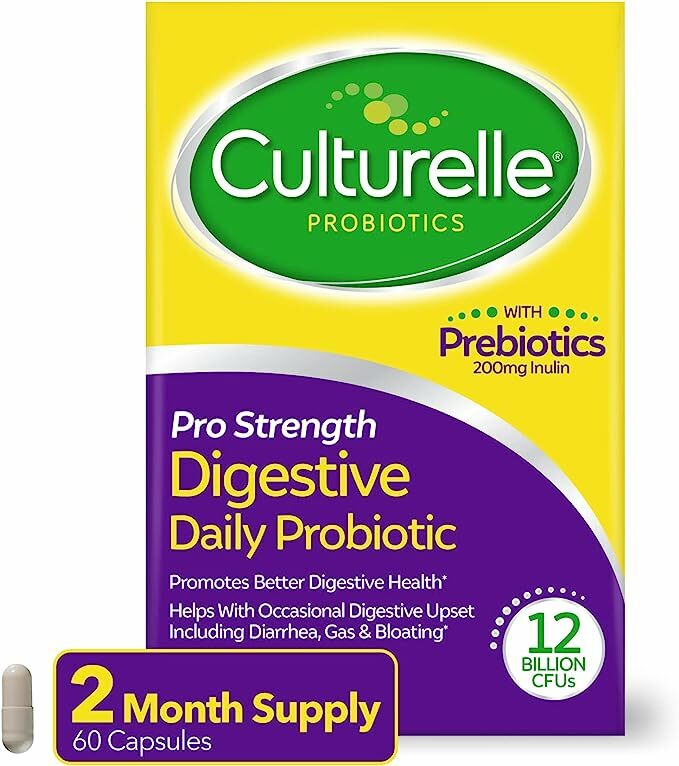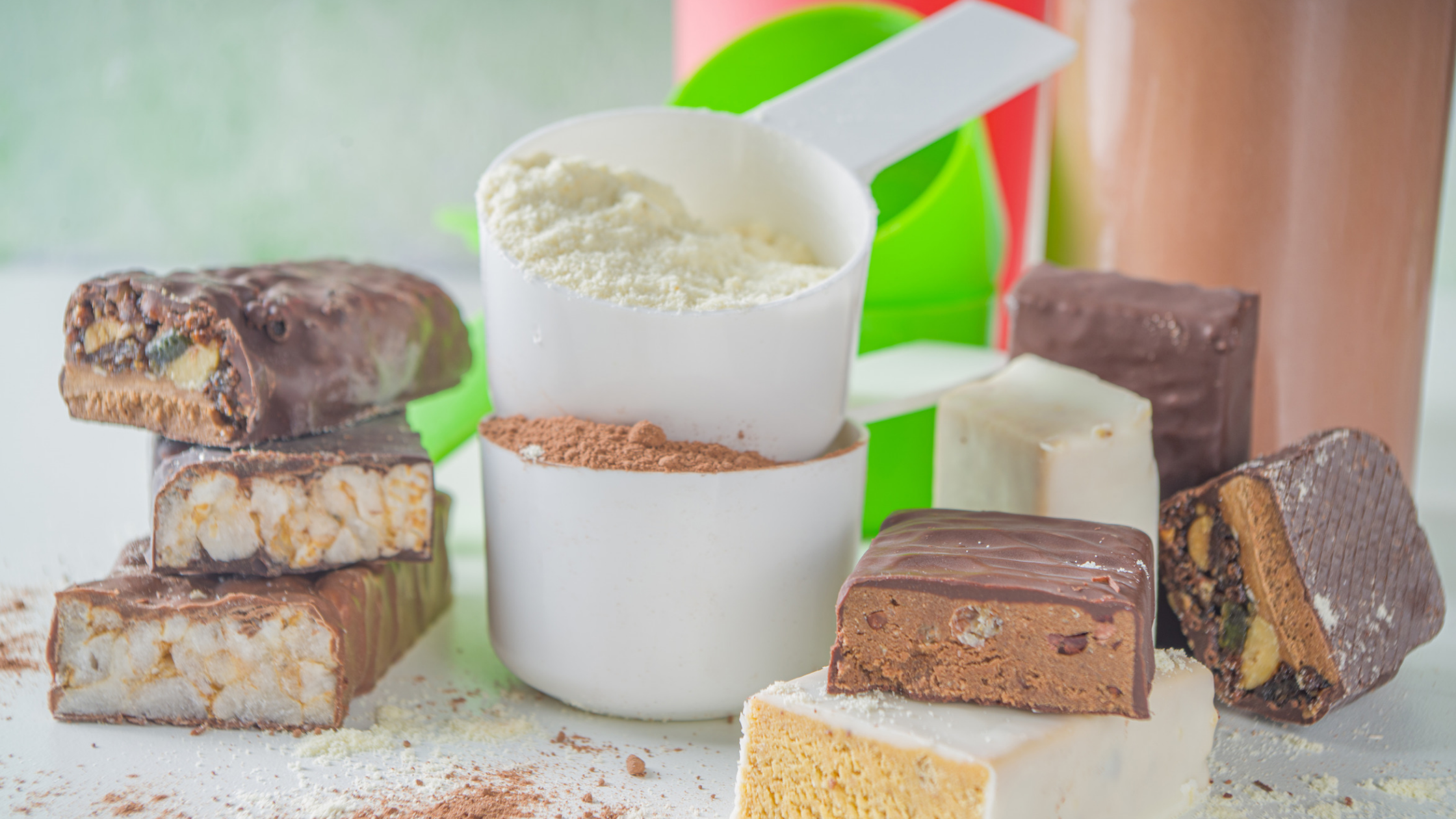Table of Contents
ToggleWhat are the benefits of probiotics?
Best Probiotics: Probiotics are live microorganisms that are similar to the beneficial bacteria found in the human gut. They can be taken as a supplement or found in certain foods, and they offer a variety of health benefits.
Probiotics are often called “good” or “helpful” bacteria because they help keep the gut healthy. In the gut, they compete with harmful bacteria for space and food. They also produce compounds that kill harmful bacteria. By doing so, they help prevent infections and keep the gut microbiome in balance.
The gut microbiome is the collection of all the genes of all the microbes living in the gut. It’s estimated that there are over 100 trillion microbes living in the gut, and that they outnumber human cells 10 to 1! The gut microbiome has a big impact on our health, and probiotics play a role in maintaining a healthy gut microbiome.
Probiotics have been shown to offer a variety of health benefits, including:
-Improving digestive health
-Reducing the risk of antibiotic-associated diarrhea
-Treating and preventing vaginal yeast infections
-Treating and preventing urinary tract infections
-Reducing the severity and duration of colds and flu
– boosting the immune system
There is still more research to be done on the exact mechanisms by which probiotics offer these health benefits. However, we do know that probiotics play an important role in maintaining a healthy gut microbiome, which is essential for good health.
If you’re looking to add probiotics to your diet, you can find them in many different forms. Probiotic supplements are available in capsule, powder, and liquid forms. Probiotic-rich foods include yogurt, sauerkraut, kimchi, miso, andTempeh.
Adding probiotics to your diet is a simple and effective way to improve your overall health. Talk to your doctor about whether probiotics are right for you and which type would be best for you.
Where should I buy probiotics?
There are many places to buy probiotics these days. You can find them in your local grocery store, health food store, or even online. But with so many options, it can be hard to know which one is the best for you. Here are a few things to consider when choosing a probiotic:
1. The type of probiotic. There are many different types of probiotic strains, and each one has different benefits. So, make sure to choose a product that contains the strain(s) that you are looking for.
2. The number of live cultures. The number of live cultures in a probiotic is important because it tells you how many beneficial bacteria are actually in the product. Look for a product with at least 1 billion live cultures per serving.
3. The ingredients. Some probiotics contain fillers, artificial sweeteners, or other ingredients that you may not want to consume. Be sure to read the label carefully to make sure the product only contains the ingredients you want.
4. The price. Probiotics can range in price from around $10 to $100. Generally, you get what you pay for. Higher-priced products tend to contain more live cultures and be of higher quality. However, there are some good options available at lower price points.
5. The company. When choosing a probiotic, it’s also important to consider the company that makes the product. Do some research to make sure the company is reputable and has a good track record.
These are just a few things to keep in mind when choosing a probiotic. Ultimately, the best probiotic is the one that meets your specific needs. So, take some time to research the different options and choose the one that’s right for you.
How do I know which probiotics work for me?
There are over 500 different types of bacteria that live in our digestive system. These good bacteria are important for maintaining a healthy balance in our gut, and they also play a role in our overall health. Probiotics are live bacteria that are similar to the good bacteria that already live in our gut. They can be found in dietary supplements and some foods, such as yogurt.
Probiotics are thought to have several health benefits, including helping to regulate the immune system, preventing infections, and improving gut health. However, not all probiotics are the same. Different probiotics can have different effects on the body, and they may not all be equally effective. It’s important to choose the right probiotic for your needs.
Here are a few things to consider when choosing a probiotic:
1. Why do you want to take a probiotic?
There are many different reasons why people take probiotics. Some people take them to improve their gut health, while others take them to prevent or treat specific conditions. It’s important to choose a probiotic that is targeted toward your specific needs.
2. What type of probiotic do you want to take?
Probiotics come in many different forms, including capsules, tablets, powders, and liquids. Some forms are more effective than others. For example, liquid probiotics are thought to be more effective than capsules because they are more easily absorbed by the body.
3. How much should you take?
The amount of probiotic you should take depends on the reason you are taking it. Probiotics are measured in colony-forming units (CFUs). The higher the CFU, the more live bacteria there are in the probiotic. Probiotics containing at least 1 billion CFUs are generally considered the most effective.
4. What are the side effects?
Probiotics are generally safe and well-tolerated. However, they can cause side effects, such as gas and bloating. These side effects are usually mild and go away on their own.
5. What is the shelf life?
Probiotics are live bacteria, so they need to be stored properly to stay alive. Probiotics typically have a shelf life of one to two years. However, this can vary depending on the type of probiotic and how it’s stored.
6. How much does it cost?
Probiotics range in price from $10 to $50 for a one-month supply. Some probiotics are more expensive than others because they contain more live bacteria or higher quality ingredients.
7. What is the best probiotic for me?
The best probiotic for you is the one that meets your individual needs. If you’re taking a probiotic for general gut health, a lower CFU product is typically all you need. If you’re taking a probiotic for a specific condition, such as IBS, you may need a higher CFU product. Probiotics are available in many different forms, so there is sure to be one that is right for you.
Which probiotic species work for me?
The human gastrointestinal tract is home to a myriad of different microbes, many of which are beneficial to our health. Probiotics are live microorganisms that, when consumed, offer health benefits. Probiotics are available in many different strains, and each strain offers different benefits. So, which probiotic species work for me?
The best way to find out is to consult with a healthcare professional. They will be able to recommend the best probiotic strains for your individual needs based on your health goals.
Some of the most popular probiotic strains include:
Lactobacillus: This is the most common probiotic strain and can be found in yogurt and other fermented foods. Lactobacillus offers a number of health benefits, including improved digestion, reduced inflammation, and strengthened immunity.
Bifidobacterium: This probiotic strain is often found in supplements and has been shown to improve digestive health, boost immunity, and reduce the severity of allergies and colds.
Saccharomyces boulardii: This is a yeast-based probiotic that is often used to treat diarrhea, irritable bowel syndrome (IBS), and Crohn’s disease.
If you’re thinking about taking probiotics, be sure to talk to your healthcare professional first to ensure you’re taking the right strains for your individual needs.
How long until I start to see results from taking probiotics?
If you’re thinking about taking probiotics, you might be wondering how long it will take to see results. Probiotics are live bacteria that are good for your gut health, and they’re often taken in supplement form. They can help with things like diarrhea, constipation, and bloating.
It’s important to remember that everyone’s gut is different, so it’s hard to say how long it will take for you to see results from taking probiotics. Some people might see results within a few days, while others might not see any change for a few weeks.
If you’re taking probiotics for the first time, it’s important to start with a small dose and gradually increase it over time. This will give your gut time to adjust to the new bacteria.
If you’re not seeing any results after a few weeks of taking probiotics, you might want to try a different brand or strain. It’s also important to make sure that you’re taking them regularly and at the same time each day.
Probiotics are generally safe, but it’s always a good idea to talk to your doctor before starting any new supplement. They can help you figure out if probiotics are right for you and which ones might work best for your gut.
Are there any downsides to taking probiotics?
There is a lot of talk about probiotics these days. Probiotics are live bacteria that are good for your health, especially your digestive system. They can be found in yogurt and other fermented foods, as well as in supplements. Some people think that taking probiotics is a good way to maintain a healthy gut and avoid gastrointestinal problems. But are there any downsides to taking probiotics?
It is true that probiotics can be beneficial to your health. They can help improve your digestive system and make sure that your gut is healthy. However, there are also some potential downsides to taking probiotics.
First of all, probiotics are live bacteria. This means that they can potentially cause infections if they are not properly handled. If you take probiotics and then eat or drink something that contains bacteria, you could end up with an infection.
Second, probiotics can cause side effects such as gas, bloating, and diarrhea. If you experience these side effects, you should stop taking the probiotic and see a doctor.
Third, some people may be allergic to probiotics. If you have an allergy to yogurt or other fermented foods, you should not take probiotics.
Fourth, probiotics may not be appropriate for everyone. If you have a chronic illness or are taking medication, you should speak to your doctor before taking probiotics.
Overall, probiotics can be beneficial to your health, but there are also some potential downsides to taking them. If you are considering taking probiotics, it is important to speak to your doctor first to make sure that they are right for you.
When should I not take probiotics?
Probiotics are live bacteria that are beneficial to our health, especially our gut health. They are naturally found in our bodies, and in fermented foods like yogurt and sauerkraut. Probiotics supplements are also available.
Most of the time, taking probiotics is safe and can even be helpful. However, there are a few circumstances when you should not take them.
If you have a serious illness or chronic condition, check with your doctor before taking probiotics. This is especially important if you are taking medications, as probiotics can interact with some medications.
If you have a weakened immune system, you might be more susceptible to infection from the bacteria in probiotics supplements. It’s important to talk to your doctor before taking probiotics if you have a condition that affects your immune system, such as HIV/AIDS, cancer, or diabetes.
If you are pregnant or breast-feeding, it’s generally considered safe to take probiotics. However, as with any supplement, it’s always best to check with your doctor first.
Certain probiotic strains can cause side effects, such as gas and bloating. If you experience these side effects, stop taking the probiotic and try a different strain.
In general, probiotics are safe and can be helpful to most people. However, it’s always best to check with your doctor before taking them, especially if you have a chronic illness or condition.
This site contains product affiliate links. We may receive a commission if you make a purchase after clicking on one of these links, at no cost to you.
Best overall: Culturelle Digestive Daily
Culturelle is a well-known brand of probiotics and is one of the best overall probiotic supplements thanks to its formulation and high CFU count. Plus, it doesn’t need to be refrigerated.
One capsule of Culturelle Digestive Daily Probiotic has 10 billion CFUs of Lactobacillus rhamnosus GG, a probiotic strain that may benefit a number of health conditions, such as diarrhea and irritable bowel syndrome (IBS).
This supplement also contains 200 milligrams (mg) of the prebiotic inulin, which fuels beneficial gut bacteria.
Culturelle guarantees that the stated number of CFUs on the box is viable through the expiration date of the product, something the National Institutes of Health (NIH) recommends customers look out for.
While products are not routinely tested for purity and potency by a third-party lab, the company states that it takes multiple measures to ensure quality and safety.
Additionally, Culturelle probiotics have been used in multiple clinical studies, and the company’s processes are audited regularly by NSF International.
may be good for diarrhea and IBS
doesn’t need refrigeration
gluten-free and dairy-free
rigorous quality and safety standards
packaged to ensure CFU count until end of shelf life
contains clinically studied strains
not third-party tested for purity and potency
may not be suitable for those following a vegan diet

Best probiotic for women
Culturelle Women’s 4-in-1 Protection
Each serving of Culturelle Women’s 4-in-1 Protection contains 15 billion CFUs of the following probiotic strains:
Lactobacillus rhamnosus GG
Lactobacillus crispatus LBV 88
Lactobacillus rhamnosus LBV 96
Lactobacillus gasseri LBV 150
Lactobacillus jensenii LBV 116
All of these strains are important for women’s health.
Lactobacillus rhamnosus GG promotes healthy digestion, while the rest of the included stains, such as Lactobacillus gasseri, benefit vaginal and urinary health.
These strains help keep your vaginal bacteria population healthy. They may also help protect against urinary tract infections (UTIs) by preventing the invasion of potentially harmful pathogens and encouraging a balanced environment in the vagina and urinary tract.
The supplement also includes a proprietary blend of prebiotics called bacteriophages, or phages. Phages are viruses that infect certain bacteria known to cause infections. For example, certain phages attack E. coli bacteria, which is the most common cause of UTIs in women.
Though more research in humans is needed, some studies suggest that phages, including the phages in Culturelle Women’s 4-in-1 Protection, could be used as an alternative treatment for UTIs, including antibiotic-resistant UTIs.
supports vaginal and urinary health
doesn’t need refrigeration
gluten-free and dairy-free
rigorous quality and safety standards
packaged to ensure CFU count until end of shelf life
contains clinically studied strains
includes prebiotics
not third-party tested for purity and potency
may not be suitable for those following a vegan diet

Best probiotic supplement for IBS
Align Extra Strength Probiotic Capsules
Align is a physician-trusted brand that contains Bifidobacterium longum 35624, formerly known as Bifidobacterium infantis 35624, a probiotic strain that has been researched for its role in digestive health, including IBS symptoms.
This product’s label states that each capsule contains 5 billion live bacteria at the time of manufacturing and 50 million CFUs until the “best by” date.
Because it doesn’t require refrigeration, it’s a good option if you travel often or prefer not to worry about storing your probiotic supplement in the fridge.
Note that Align contains trace amounts of lactose, so it may not be appropriate for those with severe lactose intolerance.
According to the company, Align Probiotic is DNA tested to confirm that it contains Bifidobacterium longum 35624. However, it’s unclear whether testing is performed in-house or by a third-party organization.
travel-friendly
formulated to relieve digestive issues
contains a clinically tested strain
DNA tested to confirm identity
may not be appropriate for those with lactose intolerance
not suitable for vegan diets
expensive
unclear whether product is third-party tested for purity and potency

Best probiotic for men
Bio-Kult
Bio-Kult contains 14 probiotic strains that may be beneficial for men’s health, including Lactobacillus acidophilus, Streptococcus thermophilus, and Bifidobacterium longum.
Additionally, some research suggests that supporting a healthy microbiome by taking a high quality probiotic supplement, such as Bio-Kult, may help protect against prostate cancer, the most common form of cancer among men in the United States.
Each Bio-Kult capsule contains a minimum of 2 billion microorganisms, and Bio-Kult guarantees that the total bacteria count is viable until the end of the product’s shelf life.
Each probiotic strain in Bio-Kult is microencapsulated and individually freeze-dried. This protects the probiotics from stomach acid and allows the product to be stored at room temperature.
Bio-Kult is not appropriate for those with a severe allergy to milk proteins, but it is safe for those with lactose intolerance.
stored at room temperature
relatively affordable
suitable for all ages
supports men’s health
not appropriate for those with severe allergy to milk proteins
not suitable for vegan diets
unclear whether product is third-party tested for purity and potency

Best affordable probiotic supplement
Jarrow Formulas Jarro-Dophilus EPS Capsules
Jarrow Formulas Jarro-Dophilus EPS contains eight probiotic species from six genera: Lactobacillus, Bifidobacterium, Lacticaseibacillus, Lactiplantibacillus, Lactococcus, and Pediococcus.
It’s also one of the most affordable options.
The capsules have an enteric coating, which is a barrier that helps minimize degradation in the stomach.
Some studies show that enteric-coated probiotics are more effective than non-enteric-coated probiotics. A 2019 study found that enteric coating led to a 20‐ to 40‐fold increase in the delivery of viable probiotics to the small intestine.
If the product is stored properly — at room temperature in a cool, dry environment — the 5 billion CFU count per capsule is guaranteed through the “best used before” date.
Jarrow Formulas products are tested by third-party labs that are accredited by the U.S. Department of Agriculture (USDA).
no refrigeration necessary
third-party tested for purity and potency
relatively affordable
not suitable for vegan diets

Best probiotic for weight loss
Garden of Life Dr. Formulated Probiotics Once Daily Capsules
Research shows that people who are overweight are more likely to have dysbiosis (an imbalance in gut bacteria) and lower bacterial diversity than people who are not. This may increase hunger and increase energy storage in fat tissues, which contributes to weight gain.
Taking a probiotic supplement containing specific probiotic strains, such as Lactobacillus gasseri, L. rhamnosus, and L. plantarum, may help promote weight loss in several ways, including by decreasing gut permeability, reducing inflammation, and increasing bacterial diversity.
Garden of Life Dr. Formulated Probiotics Once Daily, 30 Billion CFUs provides 30 billion CFUs of 14 probiotic strains, including Lactobacillus gasseri and L. rhamnosus, which could help support weight loss.
Garden of Life guarantees the CFU count through the end of the product’s “best use” date if it’s stored properly. This supplement keeps best in the refrigerator.
According to the company, Garden of Life supplements are third-party tested. However. the company does not disclose the name of the testing organization
CFU count guaranteed through best-use date when product is stored properly
dairy-free
contains strains that may promote weight loss
third-party tested for purity and potency
not suitable for travel, as it requires refrigeration
expensive
not suitable for those with severe food allergies
not vegan-friendly

Best allergy-friendly probiotic supplement
NOW Probiotic-10 Capsules
NOW Probiotic-10 25 Billion is a blend of 10 probiotics, including Lactobacillus acidophilus, Bifidobacterium lactis, and Lactobacillus rhamnosus. Many of the strains it contains have been shown to support immune health.
This product is formulated to deliver a potency of at least 25 billion CFUs through the “best by” date.
NOW uses DNA fingerprinting technology to guarantee the identity, potency, and purity of the bacterial strains used in its probiotic products. This testing also helps identify potential bacterial contaminants in the products prior to manufacturing.
Additionally, NOW’s facilities are certified by UL Solutions (previously Underwriters Laboratories), an independent certification safety company that ensures safe manufacturing and storage practices.
This probiotic is processed in an allergen-free facility, so it’s suitable for those with allergies.
processed in an allergen-free facility
UL Solutions-certified
delivers a potency of at least 25 billion CFUs through the best-by date
uses DNA fingerprinting technology
may support a strong immune system
not suitable for vegan diets

Best pre- and probiotic supplement
Klaire Labs Ther-Biotic Pro IBS Relief Capsules
Klaire Labs Ther-Biotic Pro contains a blend of probiotics and a prebiotic.
Specifically, it contains Lactobacillus and Bifidobacterium probiotic strains, both of which have been shown to help relieve IBS-related symptoms such as abdominal pain, constipation, and diarrhea, though more research is still needed.
It also includes partially hydrolyzed guar gum, a prebiotic that feeds the good bacteria in your gut. A 2019 study found that 5 grams of partially hydrolyzed guar gum was effective `in improving stool form in adults with IBS-D over the course of 12 weeks, but more research is needed.
This product is free from common allergens, though it’s unclear whether there’s a risk of cross-contamination.
Additionally, the supplement doesn’t require refrigeration, but storing it in the refrigerator may extend its shelf life.
Klaire Labs products are processed in a facility that follows the CGMPs put in place by the FDA and is certified by NSF International.
contains probiotics and prebiotics
contains strains that may help manage IBS symptoms
does not require refrigeration
free from allergens
NSF Certified
expensive
not suitable for vegan diets
not suitable for people who don’t tolerate prebiotics well

Best probiotic supplement for athletes
Thorne FloraSport 20B Probiotic Capsules
Thorne FloraSport 20B contains 20 billion CFUs from 3 probiotic strains. It’s formulated specifically for individuals who are under stress, such as athletes, as it’s meant to support both the digestive and immune systems.
While exercise has many benefits, engaging in regular high intensity workouts can take a toll on your body’s immune response.
This probiotic from Thorne contains Lactobacillus acidophilus and Bifidobacterium lactis, both of which have been shown to support immune health and could be beneficial for athletes and other active individuals.
Refrigeration isn’t required, as the capsules are packaged in temperature-resistant blister packs, making this a great option for traveling.
Additionally, this probiotic supplement is certified gluten-free and NSF Certified for Sport — a third-party certification that ensures products are free of substances banned in competitive sports.
packaged in temperature-resistant blister packs — no refrigeration required
formulated for athletes, active individuals, and travelers
NSF Certified for Sport
expensive
may not be suitable for those following a vegan diet

Best probiotic supplement for diarrhea
Florastor Daily Probiotic Capsules
Each capsule of Florastor Daily Probiotic provides 250 mg of Saccharomyces boulardii, a probiotic yeast that may be effective in managing symptoms of inflammatory bowel disease (IBD).
The strain has also been shown to help with diarrhea, especially antibiotic-associated or acute diarrhea (15, 16).
At time of publish, Florastor Daily Probiotic has a 4.7 out of 5-star rating on Amazon and more than 9,000 total reviews. Customers note that the probiotic is effective for reducing gas and bloating, though many also feel that it’s a bit too expensive.
The supplement comes in a vegetarian capsule and is non-GMO and gluten-free. However, because it contains lactose, it’s not suitable for those who have a dairy allergy.
It’s unclear whether these probiotics are tested to ensure purity and potency. While Florastor doesn’t mention third-party testing on the company’s website, the product is sold by CVS, which requires third-party testing on all of its dietary supplements
high customer rating
no refrigeration required
contains probiotic strain that may be helpful for antibiotic-associated and acute diarrhea
not appropriate for those with an allergy to milk proteins
unclear if third-party tested for purity and potency






